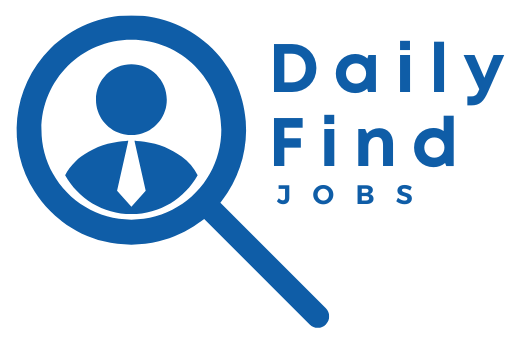Walking into an interview, you want to make a powerful impression. It’s not just about answering questions; it’s about asking the right ones. Knowing what questions to ask your interviewer can reveal your intelligence and insight. Focus on understanding company culture, team dynamics, and growth opportunities right away to show you’re truly interested and informed.
Understanding Company Culture
When discussing company culture during an interview, it’s pivotal to gather insights that reflect the values and environment within the organization. Focus on discovering how the company fosters a sense of belonging and how it aligns with your values. Ask about their specific values and how they’re lived daily.
It’s beneficial to inquire about the work-life balance. Understanding how the company supports this can reveal much about their dedication to employees’ well-being. Asking, “How does the company maintain a good work-life balance?” can provide valuable insights.
Understanding how success is celebrated can also shed light on the organization’s culture. Ask about team-building activities and motivating programs. Questions like “What are some regular team celebrations or recognitions?” can help identify a positive and encouraging environment.
Dive deeper into how decisions are made and the level of input employees have. This can reflect on the company’s leadership style and openness to feedback. “How are employees’ voices heard when making company decisions?” is a good question that speaks to transparency and inclusiveness.
Lastly, it’s crucial to see how the company supports diversity and inclusion as part of its culture. Inquiring about initiatives that promote these aspects can highlight their commitment to a supportive workplace. “What diversity and inclusion programs does the company have?” is a direct way to gauge their efforts.
Through these intelligent questions, you can better understand the company culture and determine if it aligns with your expectations and career goals.
Assessing Team Dynamics
When in an interview, understanding the dynamics of the team you might be joining is essential. This helps you gauge if you would fit and thrive within the group. Therefore, asking pertinent questions can provide significant insights.
Firstly, inquire about collaboration and communication within the team. A simple question like “How does the team communicate and collaborate on projects?” can shed light on their dynamics. Observe whether they use digital tools extensively, how often they have meetings, and what the decision-making process looks like.
Another aspect to consider is the way the team handles conflicts. You might ask, “Can you give an example of a challenge the team faced recently and how it was overcome?” This helps in understanding resilience and adaptability, key traits in any team environment.
Further, explore how success is celebrated or recognized within the team by posing the question “How are team achievements communicated and celebrated?”. This can give you insights into whether the environment is nurturing and if accomplishments are given due credit.
Additionally, understanding the support system within the team is crucial. Ask something like “How does the team support each other’s professional growth and learning?” This helps you see if there’s a culture of mentoring and mutual aid.
By paying attention to these nuances, you not only demonstrate a keen interest in the team’s success but also position yourself as a thoughtful future team member.
Exploring Growth Opportunities
One key aspect during interviews is determining the potential for advancement and growth within the company. This can be crucial in making an informed decision about the job. Understanding potential career paths is a great starting point. Ask the interviewer about opportunities for professional development and whether the company supports continuing education or certifications.
Discuss the possibility of taking on more responsibilities over time. Inquire about any available mentoring programs or if there are regular performance reviews that might open doors to new roles. It’s also helpful to know if the company encourages internal promotions, which can indicate a strong growth culture.
Another useful question could be regarding any upcoming projects or expansions. This might give insights into the company’s direction and how you might fit into their plans. Understanding the company’s long-term goals and how they align with your career objectives can be a powerful indicator of potential growth.
Finally, ask about how the company fosters innovation and adaptability. Knowing whether the organization embraces new ideas and change can directly impact your growth opportunities, assuring you that your talent will be leveraged and recognized.
Clarifying Role Expectations
When interviewing for a new position, it’s vital to understand precisely what the role entails. A clear grasp of role expectations can set the stage for future success in any job, making it essential to ask insightful questions to your interviewer. These questions help you gauge whether the position aligns with your skills and aspirations.
You might start by asking, “What are the primary responsibilities of this role?” This allows you to pinpoint day-to-day tasks and long-term responsibilities expected from you. Additionally, inquire about how these responsibilities contribute to the overall company goals, emphasizing a connection between your role and the larger objectives.
Understanding performance metrics is also crucial. Ask, “How will success be measured in this position?” This inquiry not only uncovers key performance indicators but also reveals the employer’s priorities. Are they focused more on meeting deadlines, achieving sales targets, or fostering innovation? Clarity on success metrics can help you tailor your efforts effectively.
Next, delve into collaboration by asking, “What departments or teams will I be working closely with?” This will highlight any cross-functional interactions, giving you a clearer picture of daily interactions and
collaborative dynamics
. Such understanding can be crucial for seamless teamwork and achieving shared goals.
A strong question to consider is, “What are the challenges faced by this role?” An honest discussion about potential hurdles or issues allows you to assess your readiness to tackle them and shows the interviewer your proactive mindset. This question can also illuminate any gaps in current processes that you might help to overcome.
Lastly, it’s beneficial to ask, “How has this role evolved over time?” This can provide insights into future developments and growth opportunities within the position. Understanding past changes can also highlight the company’s adaptability and how they value innovation within roles.
Discussing Success Metrics
When interviewing for a job, understanding how a company measures success can provide vital insights into its operational philosophy and your potential role in its growth. By asking about success metrics, you not only demonstrate a keen interest in contributing effectively but also gauge whether your own work style aligns with the company’s evaluation process.
Consider asking specific questions like, “What are the key performance indicators (KPIs) that this job position is responsible for?” or “How is performance reviewed and celebrated within the team?” These queries show that you are proactive about understanding expectations and actively seek to align with them.
Additionally, exploring how accomplishments are tracked and rewarded reveals much about a company’s value system and its approach to long-term success. Does the company emphasize revenue growth, customer satisfaction, or innovation? Such details can help you decide if the company’s ambitions resonate with your personal career goals.
Discussing success metrics also shows potential employers that you are driven by results and understand the importance of setting clear, measurable objectives. When you express curiosity about how success is defined, it signals professionalism and a results-oriented mindset.
Thus, delving into success metrics not only highlights your seriousness about the role but also arms you with information to assess if the company’s goals match your professional aspirations.

